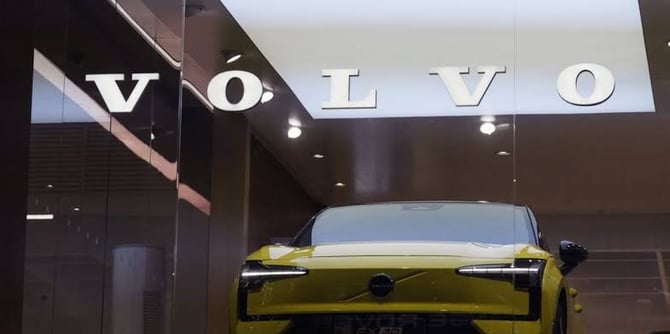Volvo Cars Downgrades Targets Amid Global Trade Challenges

Volvo Cars adjusted its 2026 margin and revenue targets, stepping back from its ambitious goal of achieving 100% electric vehicle sales by 2030. The Swedish automaker, owned by China's Geely Holding, now projects an EBIT margin of 7-8%, a slight decrease from its previous goal of above 8%. The revision is attributed to growing complexities in global trade and tariffs, particularly amid ongoing geopolitical tensions between the European Union, China, and the U.S.
In addition to the margin revision, Volvo is no longer adhering to its previous revenue goal of between $48.6 billion and $58.3 billion. Instead, the company plans to outgrow the premium car market through 2026, adjusting expectations to reflect the evolving automotive landscape, which is increasingly impacted by shifts in trade policies and EV adoption.
Despite these adjustments, Volvo remains committed to electrification. The company will no longer pursue 100% electric vehicle sales by 2030 but aims for a 90-100% range, allowing mild hybrids to stay in the lineup. The decision is based on consumer demand, slower infrastructure development, reduced government incentives, and tariff uncertainties in key markets.
What Does This Mean for Me?
In August 2024, Volvo reported global sales growth of 3% year-on-year, with a notable 32% increase in Europe and a 23% decline in China. Of the 52,944 vehicles sold, 47% were fully electric or plug-in hybrids. Volvo also announced that it would extend its partnership with Nvidia to enhance advanced driving assistance and autonomous driving features. The company reported a record quarterly operating profit of $800 million in July.
More News

Lucid Deliveries Jump About 55% in 2025 As Shares Rise 3.5%
20 hours ago
.webp)
Market Roundup: What Happened Yesterday and What We Can Expect Today (January 5)
1 day ago
.webp)
Market Roundup: What Happened Yesterday and What We Can Expect Today (January 2nd)
4 days ago

US Stocks in 2026: Still Climbing, But Can They Sustain This Pace?
5 days ago

Market Summary: What happened yesterday and what awaits us today, December 31st
6 days ago
.webp)
Market Roundup: What Happened Yesterday and What We Can Expect Today (December 30)
1 week ago

Zepto’s $1.2bn IPO Tests India’s Quick-Commerce Boom
1 week ago

Wall Street Rallies as the S&P 500 Pushes Deeper Into Record Territory
1 week ago